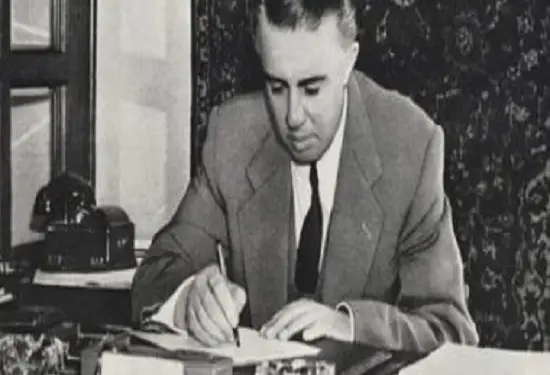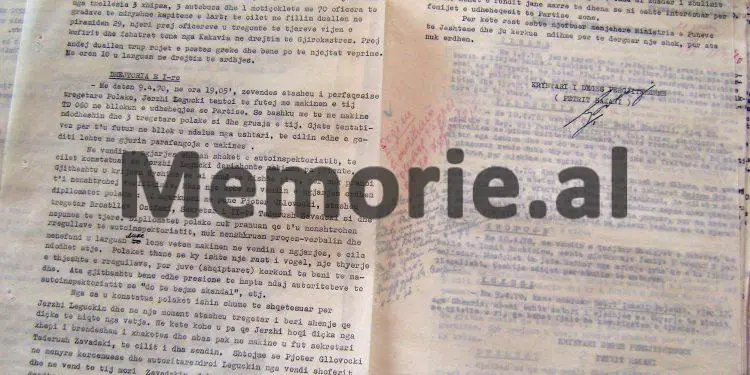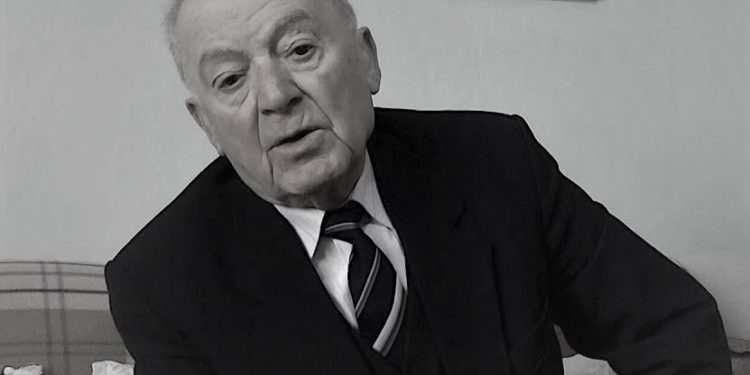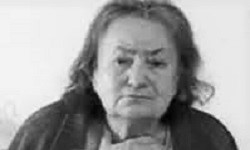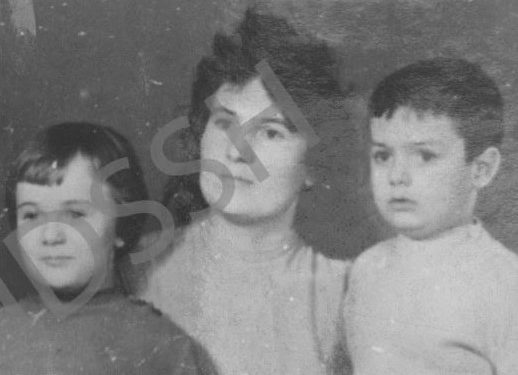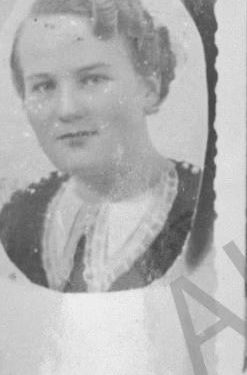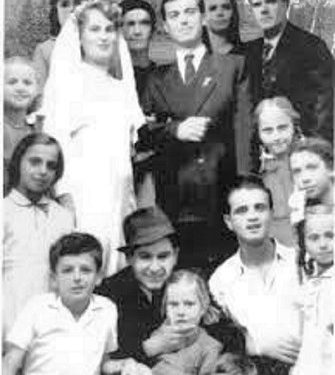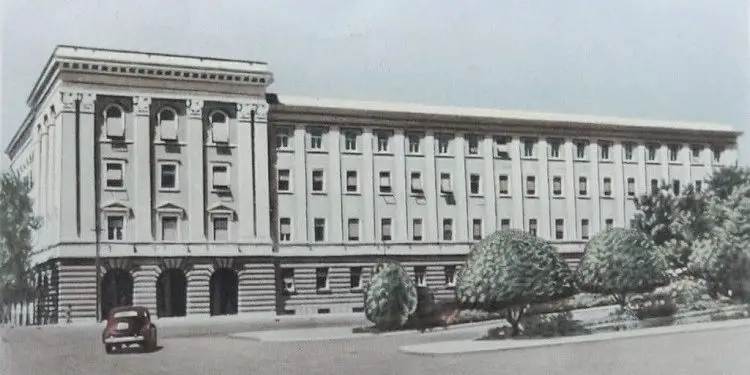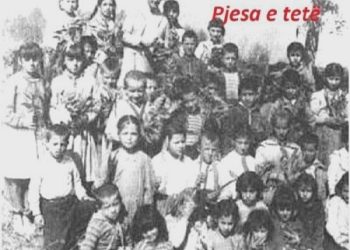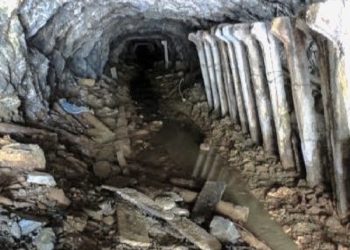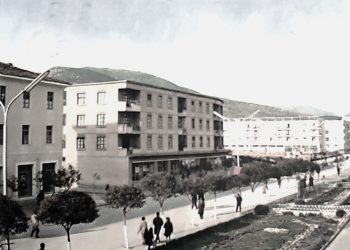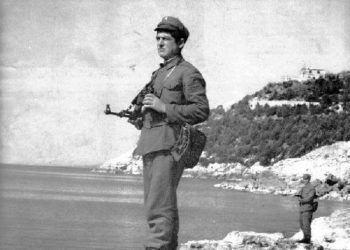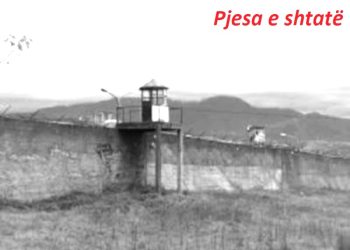By Dashnor Kaloçi
Memorie.al / As is already known, before the 90s, in almost all countries of Eastern Europe and Asia, or as they were otherwise known as the countries of the “Socialist Camp”, the main leadership of these countries lived in a special neighborhood, with comfortable and luxurious villas and apartments, which was secured with numerous armed military and civilian guards, from their secret services, etc. This rule was no exception, neither was the Albanian communist leadership of Tirana, headed by Enver Hoxha and his successor Ramiz Alia, who from 1945 until 1991, lived in the famous neighborhood in “New Tirana”, which to this day is known by its pre-90s name; “The Block”.
Like other sister neighborhoods in the communist East, the “Block” of leadership in Tirana was under strict security measures and there were 24-hour service by the Republic Guard (soldiers, officers and civilians), who guarded the outer perimeter, while the inner perimeter, which included the streets, buildings, villas, etc., was covered by civilian officers of the State Security (Second Directorate), whose main task was the physical protection and security of the personalities of the communist, party and state leadership.
Based on this, but also on the political climate of terror that prevailed in communist Albania from 1945 until 1991, when that regime collapsed, the “Block” of leadership is not known to have had security problems or to have ever been endangered by any extraordinary event. At least, nothing like this has been made public since the 1990s, with various testimonies from people who served there, and through archival documents, there is no evidence of any incident with the famous neighborhood where the top communist leadership resided, throughout the existence of that regime.
But a secret archival document (already declassified), which Memorie.al has obtained, shows that even the “Block” of the top communist leadership of Tirana was not “untouchable”, not only by Albanians, but also by foreigners, who, as is known, were constantly monitored and followed in every step they took, by the State Security and other military and civilian agents of the Ministry of Internal Affairs.
As we will see from the document in question, which as we emphasized above, is published for the first time, on April 9, 1970, a “FIAT” car of the Polish embassy accredited in Tirana, attempted to force its way into one of the main roads leading inside the “Block” of the leadership? Even hitting the armed soldier of the Republic Guard, who was serving there and tried to stop them, with the fender of the car! Not only that, but according to the document of the Ministry of Internal Affairs, from the data that the State Security had, Jerzhi Legucki turned out to be a cadre of Polish Intelligence and recently he was interested in the children of the main leader of the Party, Enver Hoxha!
The document in question only provides brief information about that incident (since it is only an operational communiqué) and it is not known how the events of that incident and the consequences that the diplomats of the Polish embassy in Tirana had to follow and precipitate. It is also not known exactly how much this event influenced the relations between the two states and mainly between the leader of communist Albania, Enver Hoxha, and the leader of the Polish Communist Party, Vladislav Gomulka, who in his speech at the meeting of 81 Parties in Moscow in December 1960, had labeled Enver Hoxha as; “an ordinary ruffian”!
Likewise, it is not known exactly how much the incident of April 9, 1970, influenced Enver Hoxha’s psyche and paranoia, and the repressive measures that the State Security had taken in those years against several Polish women who lived in Albania, after they had married Albanians, such as Barbara Wladislaw Gluc, (wife of Vasillaq Orgocka from Korça, brother of the famous actor and director, Dhimitër Orgocka), who was sentenced to 25 years in political prison, together with her husband. And after the torture in the interrogation room, causing her severe psychological trauma, with the intervention and great pressure of the Polish state and their embassy in the Albanian capital, official Tirana was forced to not only release her from prison (on 24.6.1971), but together with her friend and colleague, Barbara Kwiatkowska (Mullai), also a political prisoner, allow her to be repatriated to Poland, where they lived until after the 1990s (Barbara Orgocka, irresponsible, due to psychological trauma).
Or in the sentence imposed in 1974 on a large group of intellectuals and senior officials who had studied and graduated in Poland in the late 1950s, led by Vedat Buzin (chief engineer and director of the Ali Kelmendi Food Plant with a father who was a “Martyr of the Fatherland” and a brother who was a “Hero of the People”), which also included Ylli Alibali, Xhevat Alibali, Spiro Nikolla, Adem Nurja, Shuaip Nurja, Sofokli Lulo, Faik Gojani, Dhimitër Stramarko, etc., who, although they came from families closely linked to the ruling communist regime and with prominent contributions to the “Anti-Fascist War and the building of the country”, were sentenced to long years of political imprisonment, accused of being; “Polish agents”!
The above are and remain within the framework of hypotheses that, in order to prove them, must be further investigated through archives and testimonies of former senior State Security officials, while for the event of April 9, 1970, we know the document in question, which we are publishing with the relevant facsimile in this article.
SECRET ARCHIVE DOCUMENT, WITH THE OPERATIONAL COMMUNICATION OF THE MINISTRY OF INTERNAL AFFAIRS, DATED APRIL 9, 1970, ON THE INCIDENT OF THE DIPLOMATS OF THE POLISH EMBASSY IN TIRANA, IN THE “BLOCK” OF THE LEADERSHIP
PEOPLE’S REPUBLIC OF ALBANIA S E C R E T
MINISTRY OF INTERNAL AFFAIRS Example No. 1
GENERAL BRANCH Tirana, 10.4.1970
OPERATIONAL COMMUNICATION No. 84
FIRST DIRECTORATE
On 9.4.1970, at 19.05, the deputy attaché of the Polish trade representation, Jerzy Legucki, attempted to enter the Party leadership block in his TD-060 car. Along with him in the car, there were three Polish traders, as well as his wife. During the attempt to enter the block, he was stopped by a soldier, who was lightly hit in the knee by the car’s fender.
The comrades of the auto-inspectorate went to the scene of the incident, who found that; Jerzy Legucki was driving the car without a license. There were also suspicions that he might have been drinking, but he refused to submit to verification. After some time, Polish diplomats arrived at the scene: Chargé d’Affaires Piotr Gollowcki, Trade Attaché Brotislav Osofski, Second Secretary Taderusz Zawadski, and other officials.
The Polish diplomats refused to comply with the rules of the traffic police, did not sign the report, and finally left, leaving only the car at the scene, which is there. The Poles said that; this was a small incident, a simple violation of the rules, but you (the Albanians) are trying to make a big deal out of it. They also openly pressured the traffic police authorities, saying; “we will make a scandal,” etc.
From what was ascertained, we saw that the Poles were very worried about Jerzy Legucki and at one point, the trade attaché gestured to him to take something off of himself. At this time, it was seen that Jerzy took something out of the inside pocket of his jacket and after a while the 2nd Secretary, Taderus Zavadski, got into the car and gave him the item.
We add that Pjotër Golovcki, in a threatening and authoritarian manner, removed Legucki from the driver’s seat and replaced him with Zavadski, saying: “Now you have no right to interfere, since the car will be driven by the 2nd Secretary”.
Jerzy Legucki is being followed by our bodies as a cadre of Polish Intelligence. Recently, information has been received that he is interested in the children of the leader of our Party. The Ministry of Foreign Affairs was notified of this case and asked for help to bring a friend, but they did not come. Memorie.al
HEAD OF THE GENERAL BRANCH
PETRIT HAKANI




